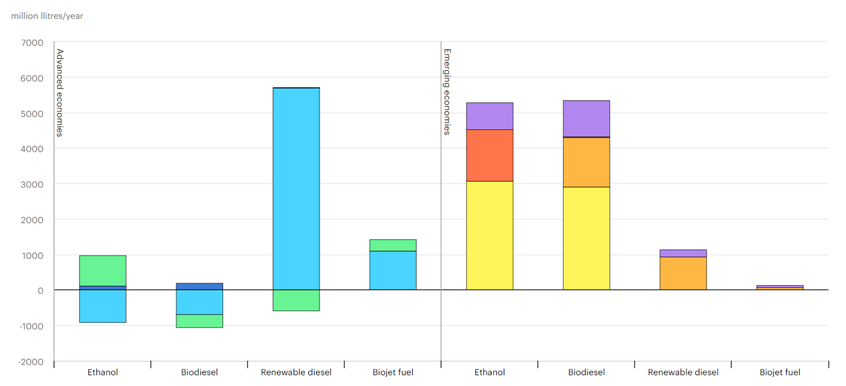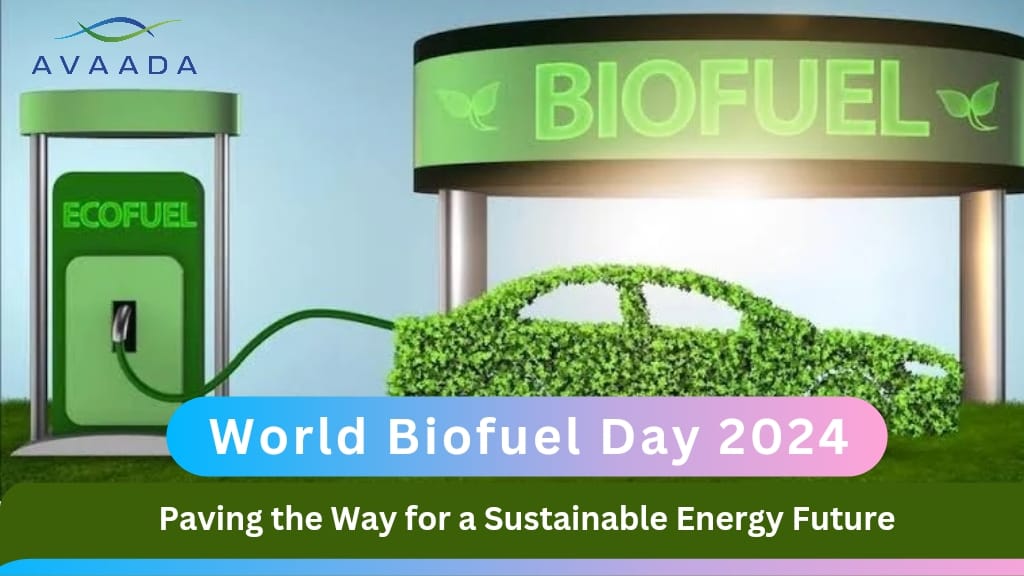Fossil fuels have long dominated the global energy landscape, powering industries and economies for generations. Yet, it’s a lesser-known fact that the first diesel engine, invented by Sir Rudolf Diesel, was powered solely by peanut oil. This historical tidbit underscores the potential of biofuels—an energy source rooted in sustainability and innovation. On World Biofuel Day 2024, we are reminded of the urgent need to transition to more environmentally friendly and renewable energy sources, with green methanol emerging as a promising game-changer in the transport sector.
The Importance of Biofuel
Biofuels, derived from organic materials such as plants, crops, and animal waste, offer a promising solution to the growing concerns over fossil fuel depletion and climate change. These renewable fuels have the potential to reduce greenhouse gas emissions by up to 90% compared to their fossil fuel counterparts. The global biofuels market is witnessing significant growth. According to the International Energy Agency (IEA), biofuel demand is expected to rise sharply by 2024. In 2023 alone, global biofuel production reached approximately 960 thousand barrels of oil equivalent per day which is a stark comparison to the 12 thousand barrels of oil equivalent per day that were produced in the year 2000. In fact, the global biofuels market is expected to reach a market size of over 200 billion U.S. dollars by 2030.


Green Methanol: A Game-Changer for Transport
Among the various biofuels, green methanol is emerging as a transformative solution, particularly in the transport sector. Produced from renewable sources such as biomass, waste, green energy and even captured CO2, green methanol offers a carbon-neutral alternative to traditional fossil fuels. Its versatility as a fuel for cars, ships, trucks, and even airplanes positions it as a key player in reducing the carbon footprint of transportation—a sector responsible for nearly a quarter of global CO2 emissions.
Green methanol’s potential lies not only in its ability to significantly reduce emissions but also in its compatibility with existing infrastructure. Unlike some other alternative fuels, green methanol can be used in conventional engines with minimal modifications, making it an attractive option for immediate adoption. Moreover, the production of green methanol supports the circular economy by utilizing waste and CO2, thereby reducing reliance on fossil fuels and minimizing environmental impact.
As the world seeks to decarbonize transport, green methanol is poised to play a crucial role. The global shipping industry, for instance, is already exploring green methanol as a sustainable fuel option to meet stringent emissions regulations. Similarly, the aviation sector is considering green methanol as part of its strategy to achieve net-zero emissions by 2050.
India’s Biofuel Revolution
India is emerging as a global leader in the biofuel sector, demonstrating remarkable progress in adopting and promoting sustainable energy sources. India, currently the fifth-largest producer of biofuels according to the OECD–FAO Agricultural Outlook 2019–2028, has made significant strides in its biofuel journey.
Recent initiatives underscore India’s commitment to advancing biofuel adoption:
- Global Biofuel Alliance (GBA): On September 9, 2023, India, along with eight other countries, launched the Global Biofuel Alliance during the G20 Summit in New Delhi. The alliance aims to promote biofuels globally as a means to reduce carbon emissions and combat climate change.
- Ethanol Blending Achievements: India achieved 10% ethanol blending in June 2022 and is on track to introduce an E20 blend by 2025. Currently, 20% ethanol blends are already available at over 1,600 retail outlets across the country.
- National Policy on Biofuels: Launched in June 2018, this policy targets a 20% ethanol share and a 5% biodiesel share by 2030. Additionally, the government has reduced the GST on ethanol blending from 18% to 5%, further incentivizing the use of biofuels.
The Path Forward
As India continues to lead the charge in biofuel adoption, several key steps are essential for ensuring long-term success:
- Green Methanol Integration: India should explore the potential of green methanol as part of its broader biofuel strategy, particularly in transport sectors like shipping and heavy transport, where it can have a significant impact.
- Ethanol Inventory Creation: The government should establish an ethanol inventory to ensure a stable and reliable supply of biofuels.
- Cost Competitiveness: To encourage widespread adoption, the cost of biofuels must be made more competitive with traditional fuels like petrol and diesel.
- Diversification of Feedstock: To meet the 2025 targets set by the National Policy on Biofuels, it is crucial to explore the viability of using alternative crops beyond sugarcane.
- Food Security Considerations: Advancements in technology are needed to produce biofuels from non-feedstock sources, thereby protecting food security.
- Comprehensive Land Use Guidelines: To prevent unintended consequences, it is important to develop guidelines that prioritize biofuel production on marginal and degraded lands while safeguarding areas for agriculture, forestry, infrastructure, and conservation.
- Supportive Policies: Governments must implement policies such as subsidies, tax incentives, and blending mandates to boost biofuel production and usage.
- Public Awareness: Raising awareness about the benefits of biofuels is critical to garnering public support and driving demand.
World Biofuel Day 2024 is a call to action for a global transition towards sustainable energy sources. India’s leadership in the biofuel sector, coupled with the potential of green methanol as a transport fuel, sets a powerful example, showcasing the promise of a greener, more sustainable future. A crucial next step in this journey is the nationwide deployment of M15 Petrol—a 15% blend of methanol with petrol—which India successfully piloted in Assam’s Tinsukia. Implementing M15 Petrol on a national scale and making it mandatory would significantly reduce the country’s reliance on traditional fossil fuels and cut down on carbon emissions, furthering India’s commitment to sustainable energy. By investing in advanced biofuels, including green methanol, and promoting their widespread use, India is not only addressing its own energy needs but also paving the way for a global response to the climate crisis.









